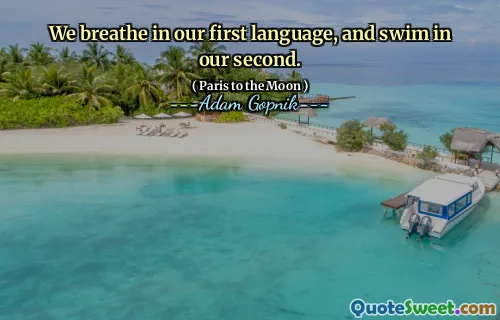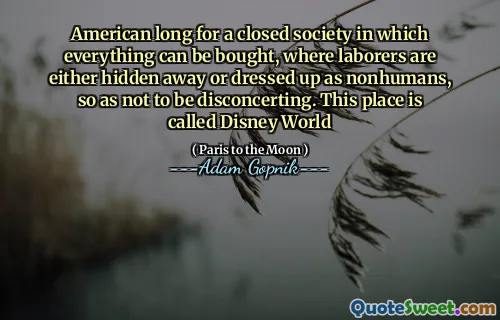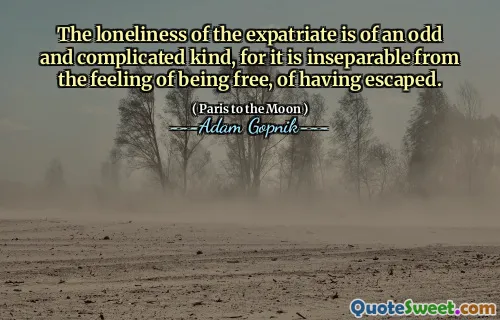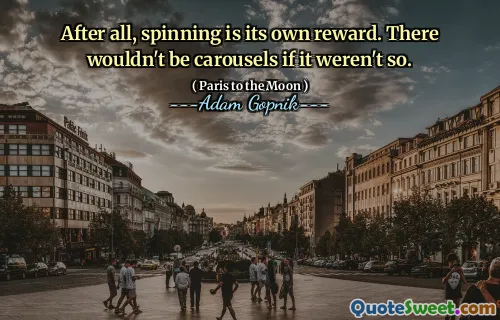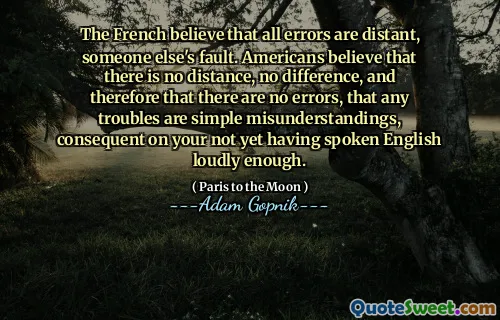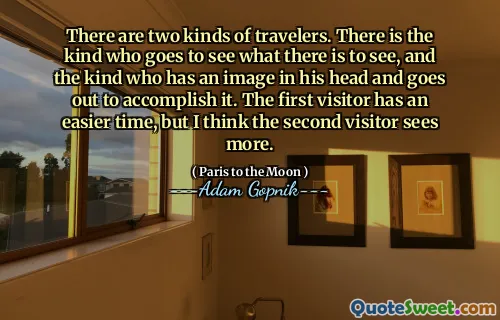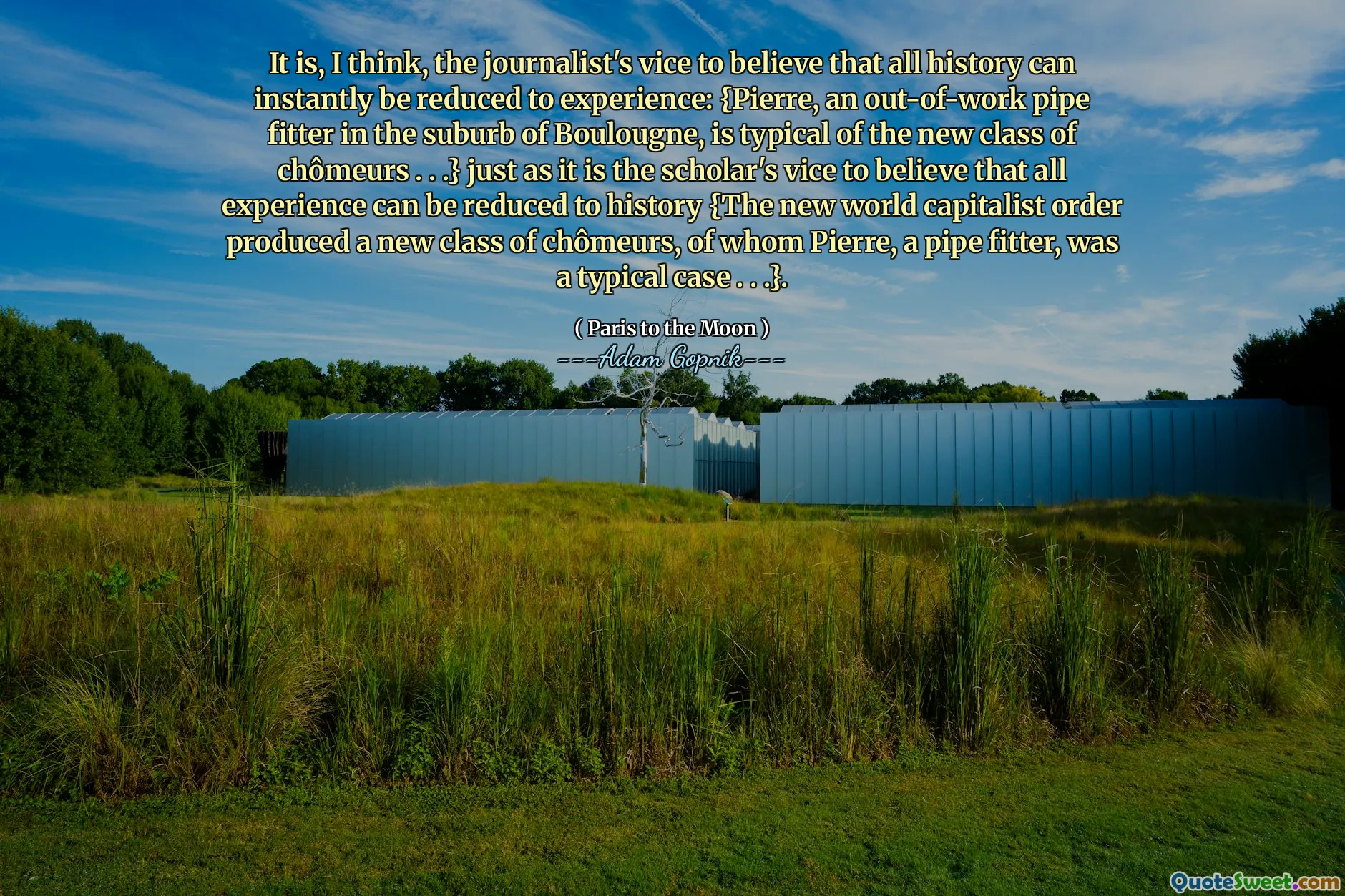
It is, I think, the journalist's vice to believe that all history can instantly be reduced to experience: {Pierre, an out-of-work pipe fitter in the suburb of Boulougne, is typical of the new class of chômeurs . . .} just as it is the scholar's vice to believe that all experience can be reduced to history {The new world capitalist order produced a new class of chômeurs, of whom Pierre, a pipe fitter, was a typical case . . .}.
In Adam Gopnik's "Paris to the Moon," he explores the tension between journalists and scholars in understanding human experience and history. He suggests that journalists often oversimplify complex historical narratives by reducing them to individual experiences, as exemplified by Pierre, an unemployed pipe fitter representing a larger phenomenon of unemployment in contemporary society. This tendency can lead to a shallow interpretation of social issues, neglecting the intricate dynamics at play.
Conversely, Gopnik points out that scholars may err by overly abstracting individual experiences into broad historical trends, overlooking the personal stories that give depth to historical events. By illustrating the case of Pierre, Gopnik highlights the need to balance personal narratives with historical context, advocating for a more nuanced approach that acknowledges both individual experiences and the larger historical framework that shapes them.
